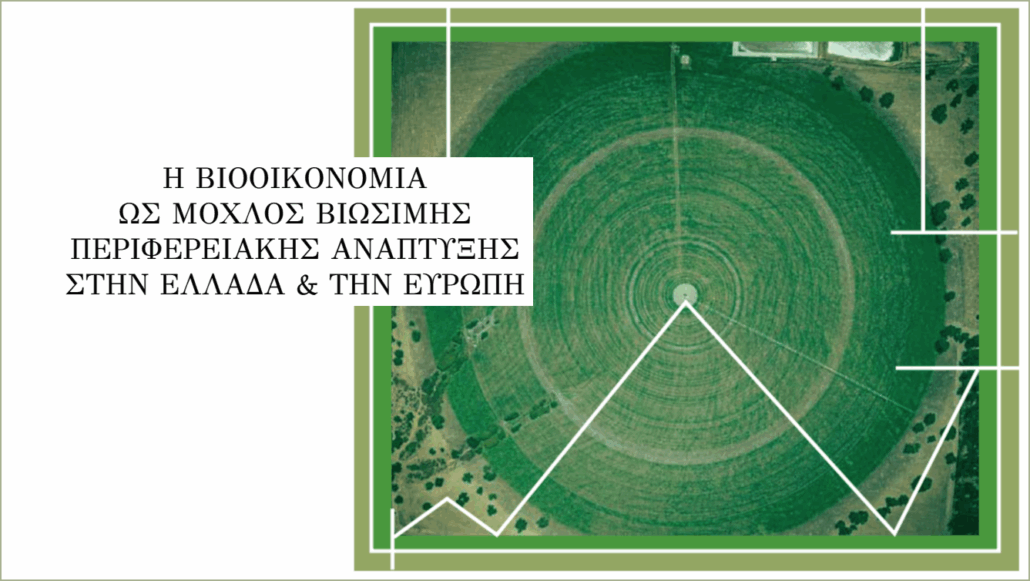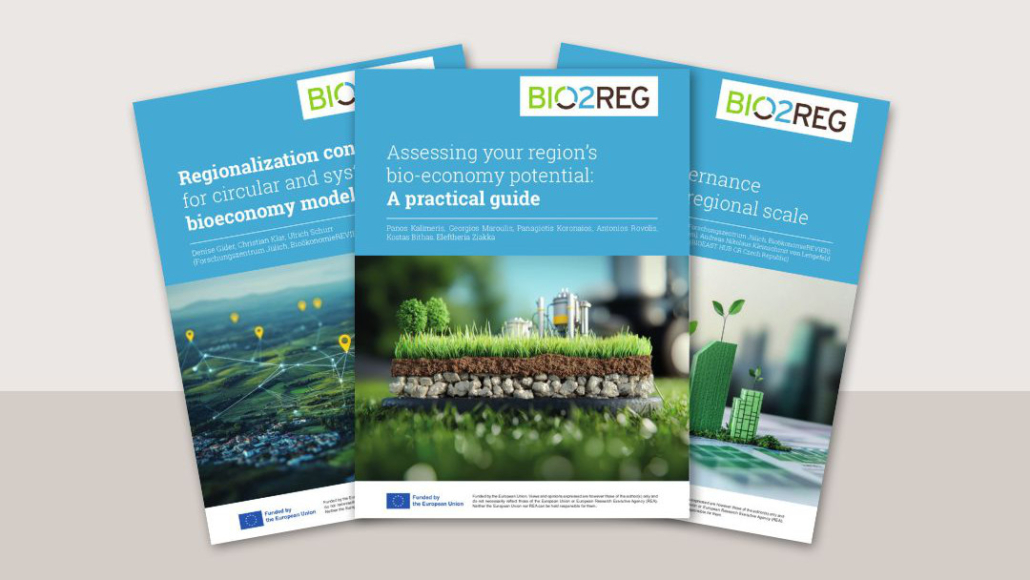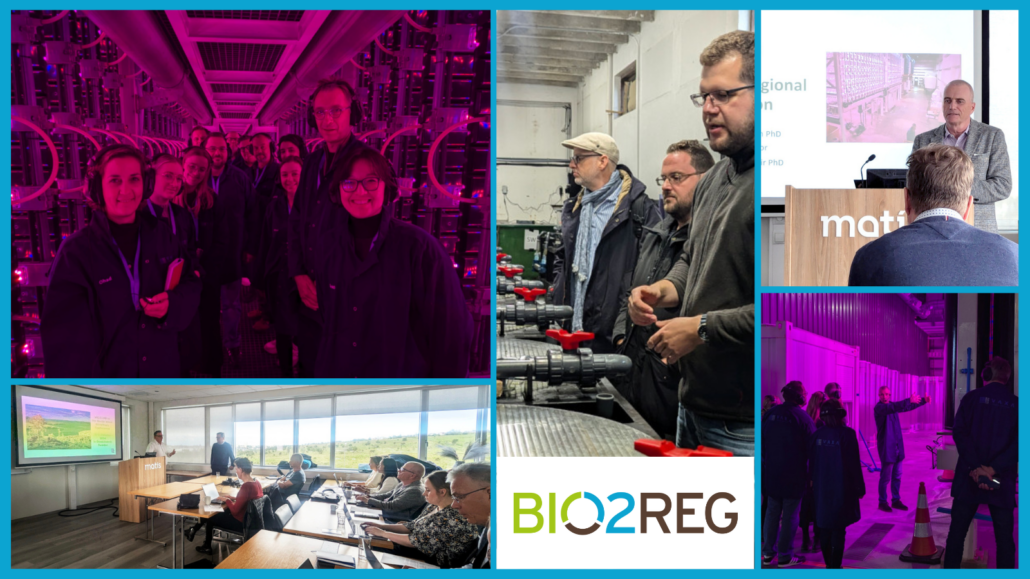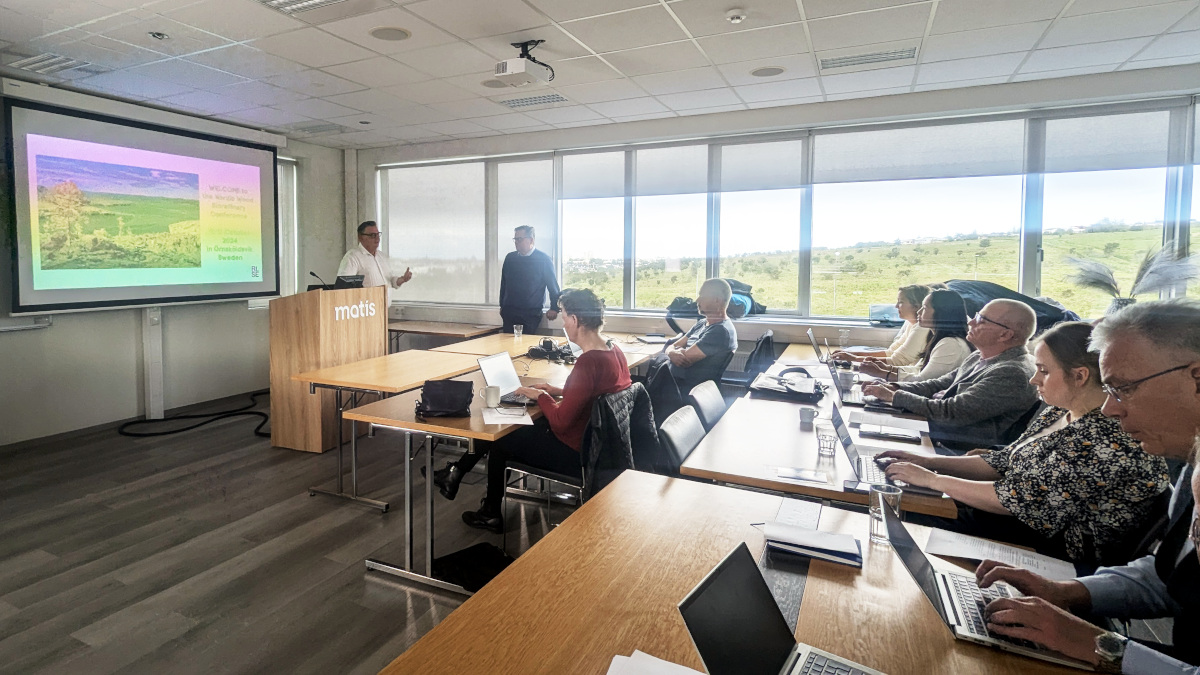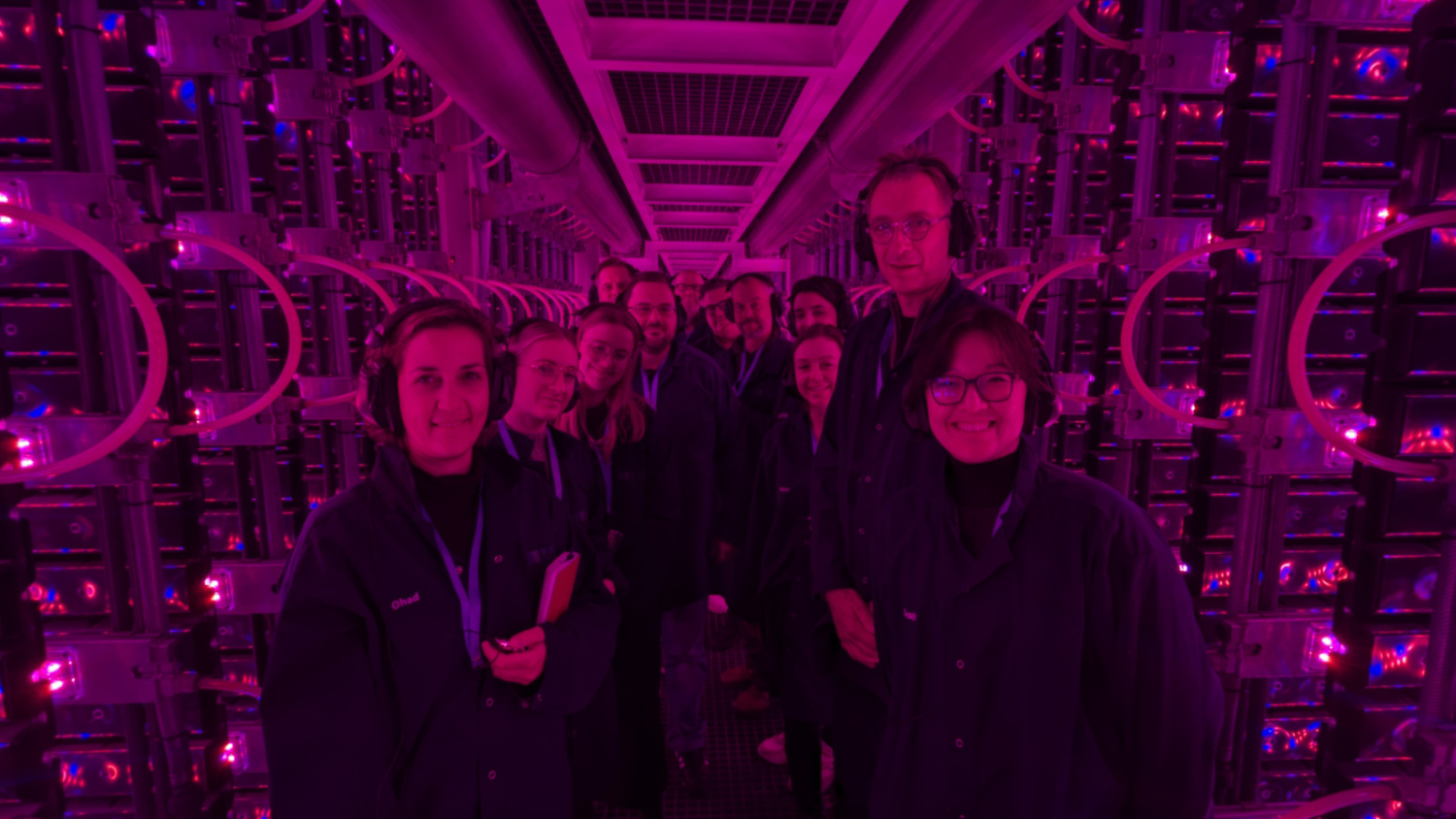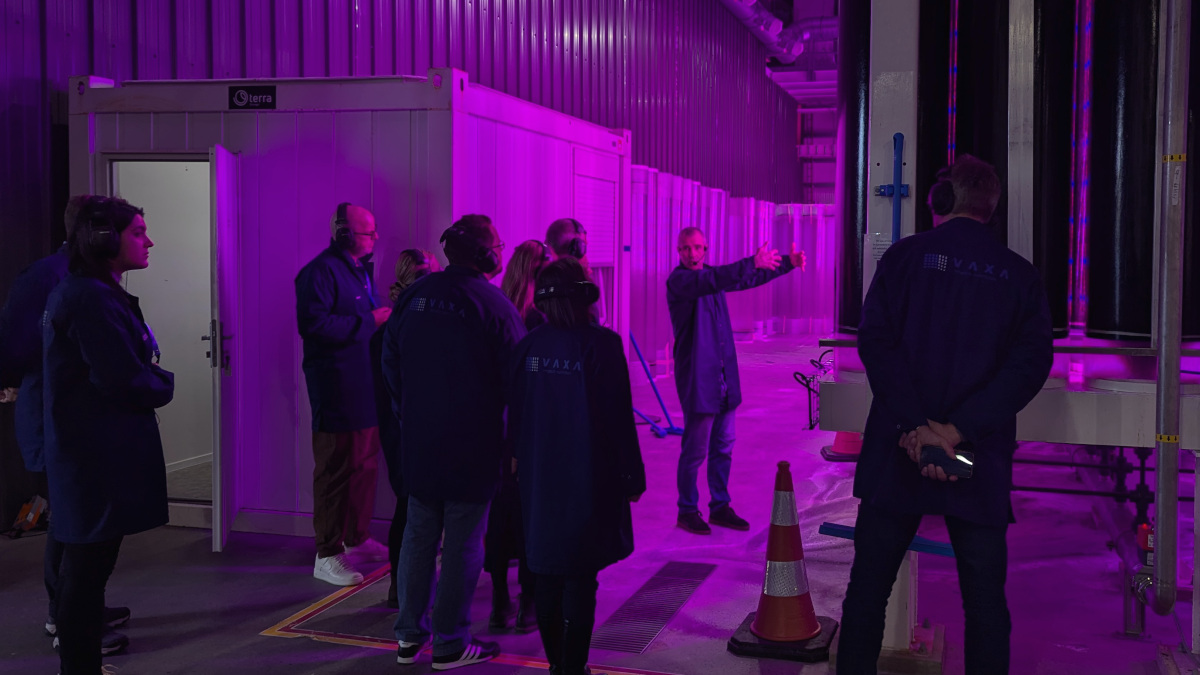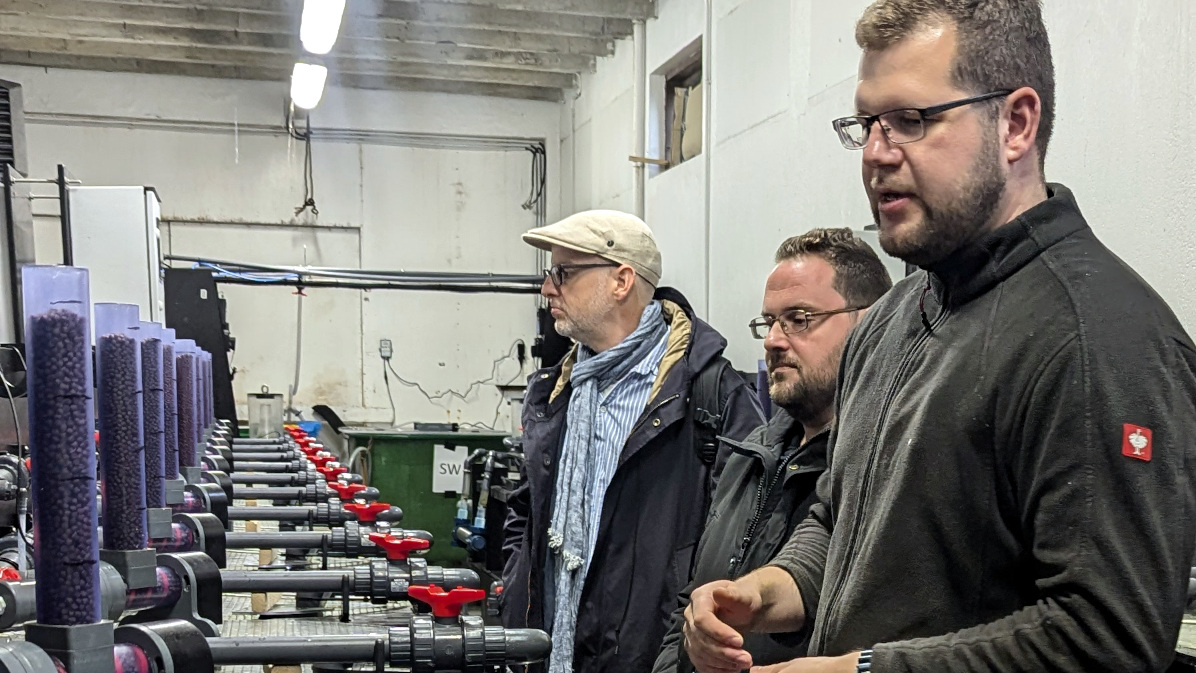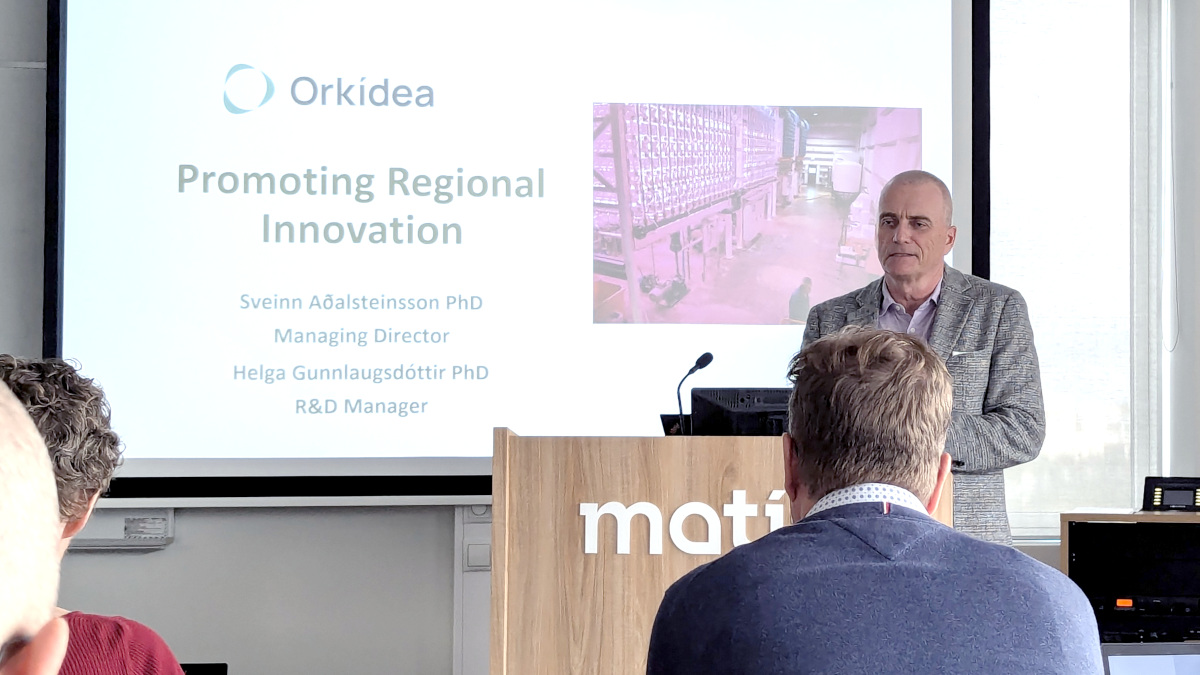Unlocking Regional Pathways for the Bioeconomy
Open invitation to regions seeking to turn their bioeconomy ambitions into concrete regional action: Registration is now open for BIO2REG Connect – Unlocking Regional Pathways for the Bioeconomy.
The event, taking place on February 3rd in Brussels, brings together regional authorities, clusters, researchers, development actors, policymakers, and experts eager to accelerate bioeconomy development in their regions. It will offer plenty of room for exchange, learning, and networking.
The morning features keynotes from the European Research Executive Agency, EU-level policy insights and regional development actors, to set the scene for regional pathways in a fair and just bioeconomy transition. It also includes insights from BIO2REG on the support available for regions, as well as pitches showcasing concrete regional initiatives and services that can help accelerate regional bioeconomy projects.
The afternoon focuses on lively exchange and direct dialogue. An interactive session will bring together regional experiences and perspectives to identify common needs and challenges and turn them into concrete next steps. Breakout discussions and a “speed-dating” session create space to connect, share ideas, and learn from each other. The day finishes with a networking reception offering a great opportunity to connect, share ideas, and build lasting partnerships.
Join us for a day of inspiring discussions, practical insights, and hands-on collaboration!
Regions were analysed and compared through different groups of indicators.
Source: https://doi.org/10.1016/j.clcb.2025.100195
From research carried out within the project, partners from the BIO2REG consortium have published a scientific article outlining their data-driven method for assessing the readiness and potential of regions across Europe to transition to a circular bioeconomy. Titled “Circular bioeconomy and the regions: Developing a two-step multi-criteria assessment (MCA) framework to evaluate regional bioeconomy potential in 8 selected European countries“, the paper appears in the scientific journal Cleaner and Circular Bioeconomy.
Authored by Panos Kalimeris and his colleagues at the Institute of Urban Environment and Human Resources, Panteion University Athens, Greece, the study builds on an extensive review of existing literature to compile a comprehensive set of bioeconomy indicators.
On this basis, the research identified 897 potential bioeconomy indicators drawn from academic studies, EU and international reports, and previous bioeconomy projects. Through a rigorous validation process – focusing on data availability, regional coverage, comparability, and transparency – the authors narrowed this to a final set of 41 quantifiable indicators suitable for regional-level assessment.
The framework then applies a two-step Multi-Criteria Assessment combining a Traffic Light Assessment for indicator selection and the modified TOPSIS decision-analysis method for regional ranking. As a first proof of concept, the framework was applied to regions in eight countries: Belgium, Czech Republic, France, Germany, Greece, Spain, Sweden, and Iceland. The ranking identifies “champion regions” with strong bioeconomy potential across economic, social, environmental, and sectoral dimensions.
“Regions are key drivers of the bioeconomy, each characterized by unique natural resource capacity, sectoral composition, and development opportunities,” said Panos Kalimeris, highlighting the importance of this work. “Our study proposes a two-step MCA framework designed to assess regional bioeconomy potential. The results highlight significant regional differences and offer insights to support tailor-made interventions and policy actions.”
- Access the full open-access article
- Download a detailed description of the MCA (PDF)
- Download the MCA self-assessment tool (XLSM)
Do you want to learn more about the MCA? Join our webinar on December 11!
As Europe strengthens efforts toward climate neutrality, bioeconomy is emerging as a potential solution for sustainable economic development. A new working paper, authored by by Panagiotis Koronaios, researcher at the Institute of Urban Environment and Human Resources at Panteion University, discusses how bioeconomy strategies can unlock environmental and economic benefits, particularly in countries like Greece facing both ecological stress and economic transition.
The paper titled “Bioeconomy as a driver of sustainable regional development in Greece & Europe”, recently released in Greek by the ENA Institute for Alternative Policies, analyzes how the bioeconomy can support regional resilience, innovation and green jobs. Developed at Institute of Urban Environment and Human Resources at Panteion University – a partner of the BIO2REG project -, the study aligns with BIO2REG’s mission to support Europe’s regions shift from fossil-based economies to bio-based, sustainable systems.
According to the paper, bioeconomy accounts for €2.3 trillion in turnover across the EU, contributing to 8.2% of total employment. However, in countries like Greece, where awareness is still limited, the full potential is largely untapped.
The paper showcases European examples of successful bio-based innovation to help readers grasp how bioeconomy contrasts with traditional economic activities. Production of biodegradable wheat straws by Staramaki in Greece and manufacturing cod skin medical products in Iceland demonstrate how waste streams and biological resources can be made into value-added products.
The paper argues that the bioeconomy can act as a catalyst for regional economic development by leveraging natural resources and connecting the agricultural sector with new technologies and emerging markets. In Greece, bioeconomy principles have particular potential in the primary sector (agriculture, forestry, fisheries), tourism and the pharmaceuticals, building on the country’s rich biodiversity and cultural heritage.
Despite isolated efforts, the paper identifies the lack of a national bioeconomy strategy as a major challenge. Only two Greek regions, Crete and Central Macedonia, have incorporated bioeconomy into development plans. The authors point to the absence of a coherent institutional framework as a key difficulty in developing the bioeconomy in Greece, even though the relevant capabilities and promising initiatives are present. A coordinated national framework supported by investment and regulatory alignment is essential for scaling innovation and attracting funding from EU programmes like Horizon Europe, LIFE and the Common Agricultural Policy (CAP).
BIO2REG connects the knowledge to practice
While the working paper highlights the untapped potential of the bioeconomy, particularly in Greece, it stresses the need to turn knowledge into practice. This is precisely where the BIO2REG project becomes a crucial tool. Funded by Horizon Europe, BIO2REG is working to help regions transition to bio-based development by identifying best practices, supporting knowledge exchange and set-up of a transition action plan.
Further reading
To read a detailed English summary of the working paper, visit the ENA Institute website.
To access the full paper in Greek, visit: ENA Full Paper (PDF)
BIO2REG is moving from its foundational build-up phase to an exciting new stage of implementation and interregional collaboration. The project has reached the halfway point of its three-year runtime, marking significant progress and the development of practical tools for the regional bioeconomy transition. The project is now well on its way to activating its interregional exchange instrument and launching the BIO2REG network later this year.
“With the first project period completed and the second now underway, this turning point reflects both the consortium’s collective achievements and our shared commitment to supporting regional transitions toward circular bioeconomy model regions,” emphasises Denise Gider, the BIO2REG project coordinator at BioökonomieREVIER, Forschungszentrum Jülich. A suite of practical outputs has been finalised to empower regional stakeholders and policy actors as they move toward sustainable, systemic change.
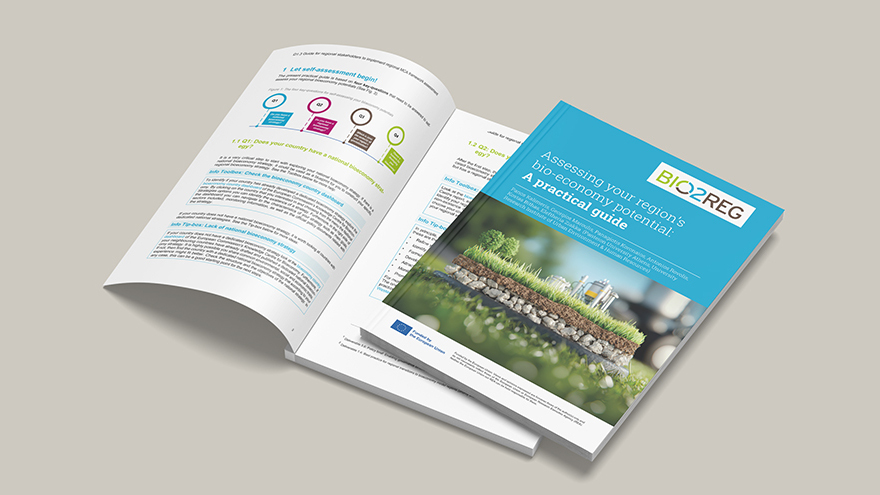 Among the key achievements is the Multi-Criteria Assessment (MCA) tool, designed to guide regional stakeholders through a self-assessment process for regions’ bioeconomy potential. Delivered as an accessible Excel-based tool, the MCA offers practical decision support built on a clear set of bioeconomy indicators. It is accompanied by a user-friendly guide that helps non-expert stakeholders evaluate their region’s bioeconomy potential in four practical steps. Grounded in the BIO2REG regionalization concept, the guide promotes a hands-on, operational approach to mapping and assessing regional bioeconomy indicators.
Among the key achievements is the Multi-Criteria Assessment (MCA) tool, designed to guide regional stakeholders through a self-assessment process for regions’ bioeconomy potential. Delivered as an accessible Excel-based tool, the MCA offers practical decision support built on a clear set of bioeconomy indicators. It is accompanied by a user-friendly guide that helps non-expert stakeholders evaluate their region’s bioeconomy potential in four practical steps. Grounded in the BIO2REG regionalization concept, the guide promotes a hands-on, operational approach to mapping and assessing regional bioeconomy indicators.
Recognising that bioeconomy transitions require consistent monitoring and strategic adjustment over time, the guide also emphasizes the importance of ongoing evaluation. “Bioeconomy transitions take time and require constant re-evaluation of the progress and the targets,“ points out one of the authors, Panos Kalimeris, Assistant Professor at Research Institute of Urban Environment & Human Resources, Panteion University Athens, adding: “A clearly defined monitoring system, supported by regional engagement and incremental progress, creates the best conditions for lasting regional transformation.”
In addition to the MCA tool, BIO2REG has released:
- A set of implementation guides to support regional actors in deploying transition measures.
- A database of user-friendly cooperation tools to foster circular and systemic bioeconomy model regions.
Looking ahead, the BIO2REG consortium is actively preparing for the launch of its interregional exchange instrument around October – an initiative that will foster alliances between more advanced bioeconomy model regions and GHG-intensive regions seeking to transition. The anticipated BIO2REG network will offer tools, expertise, and strategic support to regional actors. By connecting regional development agencies, public authorities, entrepreneurs, and bioeconomy experts, the network will promote knowledge exchange, collaboration, and long-term partnerships across regions.
“With these strong foundations laid,” concludes Gider, “the project is well-positioned to facilitate dialogue and mutual learning between regions – helping both experienced regions and those just beginning their bioeconomy transition to advance practical, regionally adapted bioeconomy solutions and structures across Europe.”
Key system dimensions for transitioning to a bioeconomy model region.
Source: BioökonomieREVIER, Forschungszentrum Jülich
The BIO2REG regionalization concept is a practical framework for initiating and further developing circular bioeconomy model regions across Europe. The concept equips regional stakeholders with a framework using its entire regional bioeconomy system to drive innovation, foster sustainable growth, create jobs, and enhance community well-being. Through implementation-oriented approaches, it turns bioeconomy concepts into tangible actions, ensuring real-world impact at the (micro) regional level.
Bioeconomy model regions
A bioeconomy model region is a geographically defined area in which circular bioeconomy acts as a central transformative narrative, where circular bioeconomy principles drive innovation, sustainable growth, and community well-being by linking regional resources, stakeholders, and strategies to support systemic transition and building on its unique strengths.
As one of its first major achievements, the BIO2REG project introduced its regionalization concept, led by project coordinator BiökonomieREVIER at Forschungszentrum Jülich with the support of the consortium and BIO2REG’s Advisory Board members. The framework, which is under review by the European Commission, outlines how to adapt circular bioeconomy principles to the unique characteristics, needs and strengths of specific regions.
Built on an integrative systems approach, the framework highlights critical fields of action that bridge system dimensions, such as governance, innovation ecosystems, stakeholder collaboration, training, and sustainable resource management, explains BIO2REG project coordinator Denise Gider. “This approach ensures impactful and coordinated regional bioeconomy transitions. It translates high-level global, macro-regional, and national bioeconomy strategies into actionable regional plans, aiming to generate tangible impacts at the local level by integrating the whole regional bioeconomy system”, Gider adds.
The regionalization concept is the foundation of BIO2REG’s interventions and serves as a basis for building capacities in regional stakeholders, with a particular focus on local authorities and businesses. It centers on the understanding and benefits of understanding and using circular bioeconomy principles for regional development, ensuring that the framework is adaptable to various regional conditions. The concept is implemented through targeted activities in different European regions that engage and build capacities in the region’s key stakeholders, enabling them to initiate or further mature their bioeconomy model regions through actionable, region-specific action plan.
The next steps within BIO2REG will involve refining the regionalization concept through continued workshops, stakeholder engagement, and feedback integration as part of Work Package 2. This work package focuses on establishing the BIO2REG network and organizing events in 2025 across five BIO2REG regions in Spain, Greece, Germany, Czech Republic, and Sweden.
Workshop on the role of research infrastructure and Living Labs
For regions transitioning to a bio-based economy, research infrastructure and living labs can foster collaboration and bridge the gap between innovation and commercialisation. This pivotal role was highlighted during BIO2REG’s concluding expert workshop in Reykjavík, Iceland.
The BIO2REG workshop on the role of research infrastructure and living labs in regional bioeconomy transitions brought together 26 research, business and rural development experts in Reykjavík, Iceland. Living labs and research infrastructure are key to developing bioeconomy model regions, acting as hubs for demonstrating, testing, scaling, and implementing new technologies and business models. They encourage collaboration between researchers, industry, and communities to address challenges like climate change, resource scarcity, and rural development. Workshop participants explored regions’ challenges in shifting to bio-based economies and discussed how research infrastructure and living labs can facilitate this transition. The workshop underscored these resources’ vital role in fostering collaboration, promoting knowledge transfer, and driving sustainable development across diverse industries. The discussions were complemented by site visits to leading local bioeconomy practitioners, such as microalgae-culturing VAXA, Brim Seafood, and state-of-the-art Matís Aquaculture Research Station.
A Benchmark for Facility Sharing Excellence
The transition to bioeconomy is challenging, particularly in regions bound by conventional business practices and fragmented governance. Consequently, shared facilities, such as living labs, are often at the heart of bioeconomic transitions in rural areas, bringing like-minded people together. The success of such efforts was demonstrated by Sveinn Aðalsteinsson from Orkídea. This nano-organisation from South Iceland promotes eco-industrial parks that operate on circular economy principles, where waste from one company becomes a resource for another, creating innovation hubs in rural areas. The BIO2REG expert workshop participants observed this concept at the VAXA microalgae-culturing facility. The facility is integrated with a geothermal plant and uses its clean energy and natural carbon emissions to power microalgae production. Eco-industrial parks like this build regional resilience and drive bioeconomic transformations by bringing together entrepreneurs and investors to address local environmental challenges while creating economic value.
Infrastructure and competencies for SMEs
Another insightful outlook at the shared facilities spotlit testbeds and pilot halls that de-risk innovation processes and help Small and Medium Enterprises (SMEs) scale up bio-based solutions. Per Tomani and Matthias Drotz from Research Institutes of Sweden (RISE) demonstrated the power of mobile teaching platforms that allow industries to visualise technology before adopting it into their processes. An excellent example is LignoCity in Bäckhammer, Sweden, a demonstration facility for commercialising kraft lignin products. By participating in the test environments, SMEs can validate the real-world conditions before large-scale commercialisation. This kind of infrastructure is a vital stepping stone for SMEs in transitioning towards cutting-edge bio-based products, as it is rare for a single SME to have all the infrastructure and competencies needed.
Finally, workshop participants exchanged on best practices and lessons learnt for new technologies and research infrastructures, particularly in more traditional industries such as fishing and farming. Presentations from experts, including Guðmundur Stefánson from Matís, Roland Pieruschka from Forschungszentrum Jülich, and Ola Pettersson from RISE , emphasised how transitioning to fossil-free, resilient systems is achievable by integrating accessible infrastructure, new tools and practices (e.g. PHENET, Microbes4Climate and the European Plant Phenotyping Network to name just a few) and collaborations between communities, industry, farmers and researchers. Large-scale investments often support testing, scaling, and early adoption of the practices. However, it is the undeniable benefits—such as improved product quality and increased profits—that truly drive market competition. A prime example of this is the Icelandic seafood sector, where export values have tripled over the last forty years, thanks to fish processing optimisation, specialisation, and automation.
The potential for scaling up bio-based solutions is immense, and the role of research infrastructure and living labs in bridging the gap between innovation and commercialisation is crucial. By fostering collaboration, building eco-industrial parks, and creating opportunities for adopting bio-based solutions, these platforms provide regions with the tools needed for a sustainable and resilient future. Stay tuned to read the complete guide on the best practices collected from the BIO2REG experts on the regional transition towards bio-based economies!
The organisers
More about Matís
More about Research Institutes of Sweden (RISE)
More information
Matís Aquaculture Research Station
Orkídea
VAXA
Brim Seafood
LignoCity
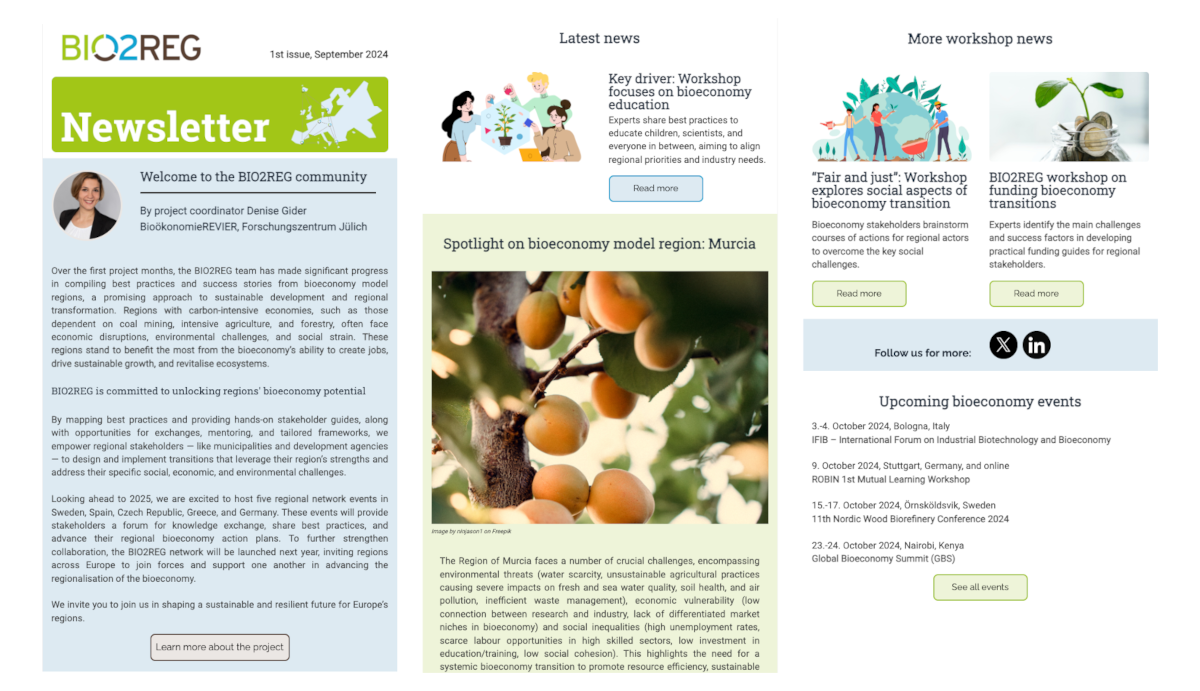
From project news to spotlighting key bioeconomy regions: BIO2REG’s first newsletter is out!
Or better yet: Sign up for our newsletter!
Funded by the European Union

Views and opinions expressed are however those of the author(s) only and do not necessarily reflect those of the European Union or European Research Executive Agency (REA). Neither the European Union nor REA can be held responsible for them.


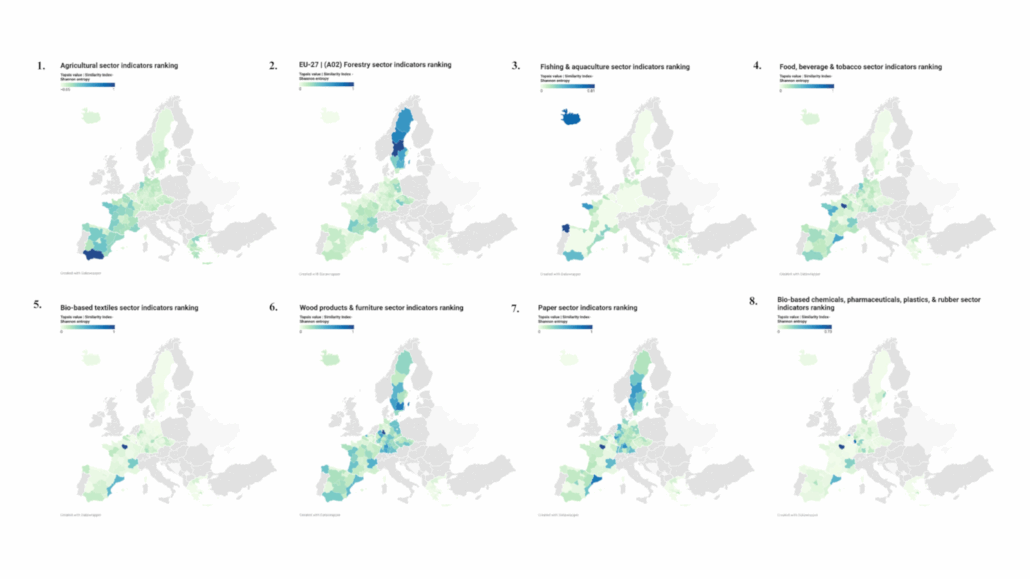 Regions were analysed and compared through different groups of indicators. Source: https://doi.org/10.1016/j.clcb.2025.100195
Regions were analysed and compared through different groups of indicators. Source: https://doi.org/10.1016/j.clcb.2025.100195 